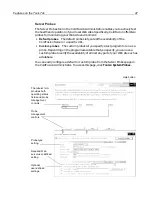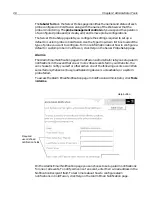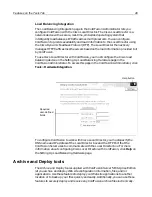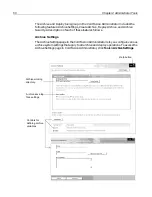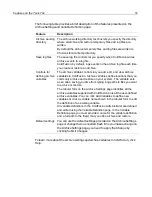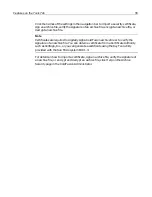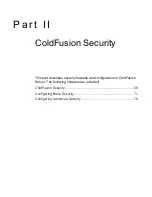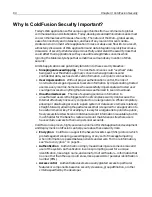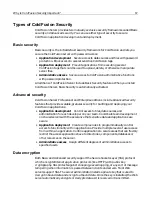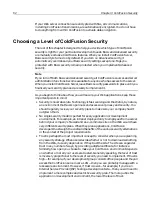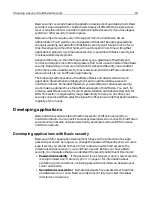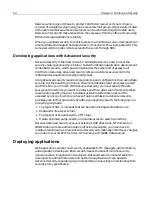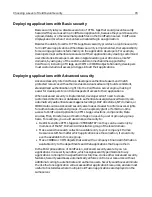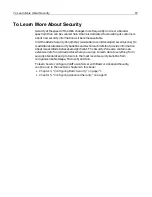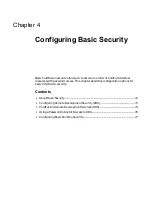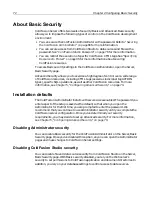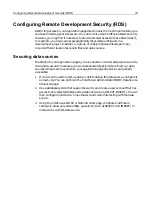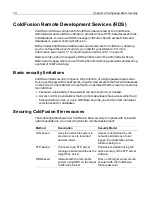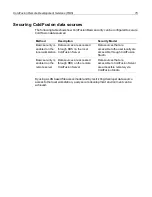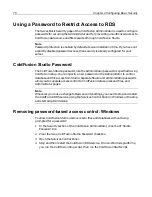
Why Is ColdFusion Security Important?
61
Types of ColdFusion Security
ColdFusion Server provides two mutually exclusive security frameworks called Basic
security and Advanced security. You can use either type of security to secure
ColdFusion application development and deployment.
Basic security
Basic security is the initial default security framework for ColdFusion and lets you
secure the ColdFusion server with password access:
•
Application development
Secure access to data sources and files with password
protection. Block access to several sensitive ColdFusion tags.
•
Application deployment
Prevent applications from executing several
ColdFusion tags that could be used to upload, delete, or otherwise manipulate
server files.
•
Administrative Access
Secure access to ColdFusion administrative functions
with password protection.
All editions of ColdFusion Server include Basic Security features. When you install
ColdFusion Server, Basic Security is automatically activated.
Advanced security
ColdFusion Server Professional and Enterprise editions include Advanced Security
features that provide scalable, granular security for building and deploying your
ColdFusion applications:
•
Application development
Control access to files, data sources and
administration for each developer on your team. Coordinate team development
on shared servers with the assurance that sensitive data and applications are
secure.
•
Application deployment
Create complex rules to programmatically control
access to functionality within applications. Provide multiple levels of user access
from within an application. Confine applications to secure areas that can flexibly
restrict the access applications have to directories, components, databases or
other resources on the server.
•
Administrative access
Assign different degrees of administrative access to
specified users.
Data encryption
Both Basic and Advanced security support the Secure Sockets Layer (SSL) protocol
which encrypts Internet application protocols (like HTTP) with public key
cryptography. SSL protects against snooping, eavesdropping, or any sort of message
tampering when information is passed between clients and servers. Most Web
servers support SSL. The server administrator installs a private key that is used to
decrypt inbound data and encrypt outbound data. Once the key is installed, the Web
server automatically encrypts or decrypts data as it is received or transmitted.
Summary of Contents for COLDFUSION 5-ADVANCED ADMINISTRATION
Page 1: ...Macromedia Incorporated Advanced ColdFusion Administration ColdFusion 5...
Page 20: ......
Page 56: ...38 Chapter 1 Advanced Data Source Management...
Page 74: ...56 Chapter 2 Administrator Tools...
Page 76: ......
Page 86: ...68 Chapter 3 ColdFusion Security...
Page 87: ...To Learn More About Security 69...
Page 88: ...70 Chapter 3 ColdFusion Security...
Page 130: ...112 Chapter 5 Configuring Advanced Security...
Page 132: ......
Page 154: ...136 Chapter 6 Configuring Verity K2 Server...
Page 162: ...144 Chapter 7 Indexing XML Documents...
Page 202: ...184 Chapter 8 Verity Spider...
Page 236: ...218 Chapter 10 Verity Troubleshooting Utilities...
Page 238: ......
Page 348: ...330 Chapter 14 ClusterCATS Utilities...
Page 349: ...Using sniff 331...
Page 350: ...332 Chapter 14 ClusterCATS Utilities...
Page 362: ...344 Chapter 15 Optimizing ClusterCATS...
Page 372: ...354 Index...

